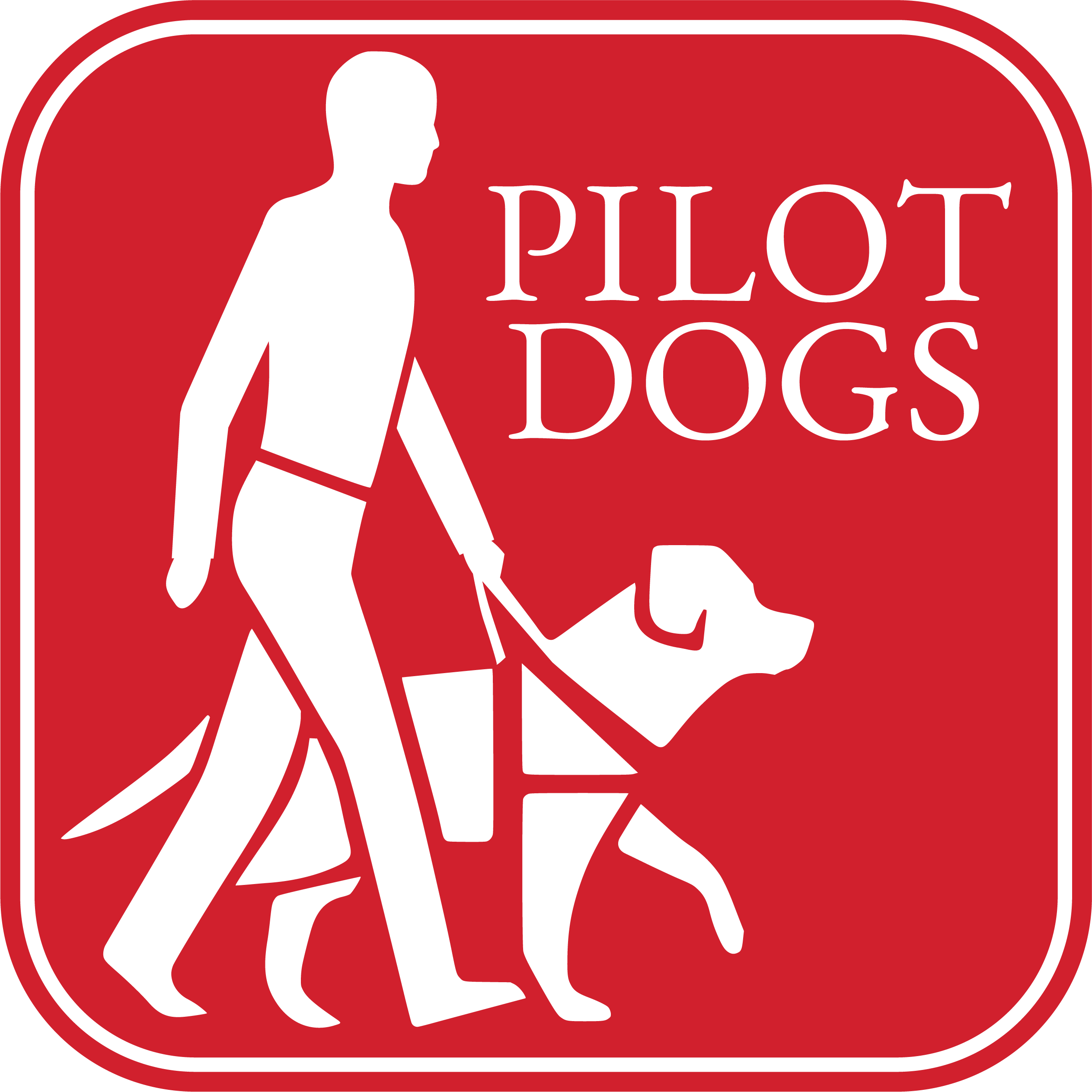Facility Dog Program
Discover Pilot Dogs' Facility Dog Program, where specially trained dogs bring comfort and support to hospitals, schools, nursing homes, and rehabilitation centers. Our dogs undergo rigorous training to provide emotional support, encourage social interaction, and assist in therapeutic activities under the guidance of professionals. Partnered with caregivers and educators, these dogs enhance environments, reducing stress and promoting well-being.
The presence of facility dogs has been shown to reduce stress, anxiety , and loneliness among patients, students, or residents in institutional settings. They can also motivate idividuals to engage more actively in therapy or educational activities. Experience the transfromative impact of Pilot Dogs' Facility Dog Program in fostering connections and improving quality of life across diverse institutional settings.
Any accredited educational institution is welcome to apply; when assessing a school's eligibility for a school resource dog, we will conduct a thorough review to determine the suitability of the school for integrating a dog into its educational environment. Our goal is to ensure the well-being and safety of everyone involved.

Why Choose Us for Your School Resource Dog?
Pilot Dogs has been training and placing service dogs since 1950, and we have a strong track record of success.
Pilot Dogs is a nonprofit organization, which means that we are focused on providing high-quality service and assistance dogs, not on making a profit.
Pilot Dogs is accredited by both the International Guide Dog Federation and Assistance Dogs International, which means that we meet (and continuously strive to exceed) the stringent standards of both of these organizations in the areas of dog care and training, facility safety and cleanliness, and matching dogs with recipients.

What is a Facility Dog?
A facility dog is a specially-trained canine that is introduced into a school environment to provide a range of emotional, educational, and therapeutic support to students and staff.
These dogs are not guide dogs for the blind, but rather serve a different purpose in educational settings. SRDs are carefully selected and trained to ensure they have the right temperament and behavior for a school environment. Handlers or designated staff members receive training on how to work with the dog, and specific guidelines and rules are established to ensure the safety and well-being of everyone in the school.
SRDs can have a positive impact on the school environment by providing emotional support, enhancing learning, and promoting social and emotional skills. Choosing a reputable organization like Pilot Dogs to supply and train the dog ensures that the dog is well-prepared for their role and that the school receives ongoing support.
What Are the Benefits of School Resource Dogs?
Having a trained SRD, particularly one supplied by an organization like Pilot Dogs, can offer several benefits to schools.
-
Emotional Support: SRDs can provide emotional support to students and staff. The presence of a friendly and well-trained dog can help reduce stress, anxiety, and even aggression or bullying in students. The calming effect of a dog's presence can be especially beneficial in situations where students are dealing with trauma, stress, or special needs.
-
Special Needs Support: SRDs can be particularly beneficial for students with special needs, such as those with autism, ADHD, or emotional disabilities. The dogs can help these students focus, regulate their emotions, and improve their social skills. Interactions with the dog can be integrated into occupational therapy, speech therapy, or other therapeutic interventions to help students achieve specific goals.
-
Enhanced Learning: Research has shown that having a dog in the classroom can improve the overall learning environment. Students may be more motivated to attend school and participate in activities when there is a dog present. Additionally, SRDs can be used as a teaching tool to help students learn about responsible pet ownership, empathy, and compassion.
-
Social and Emotional Skills: Interacting with a SRD can help students develop social and emotional skills. It can encourage communication, empathy, and cooperation among students. For example, students may take turns caring for the dog or working together to follow the dog's commands.
-
Behavioral Improvements: SRDs can have a positive impact on behavior in the classroom. Students who have difficulty focusing or controlling their impulses may benefit from the calming presence of a dog. In some cases, the responsibility of caring for the dog can also promote better behavior.
-
Strengthening the School Community: Having an SRD can build a sense of community within the school. Students, teachers, and staff may develop a sense of connection and responsibility for the dog, fostering a positive and inclusive atmosphere.
-
Crisis Response: In the unfortunate event of a school crisis, such as a natural disaster or emotional trauma, school resource dogs can provide comfort and emotional support to students and staff.
Support & Training
We are committed to fostering a positive and harmonious relationship between our school resource dogs and the humans they interact with. We believe that ongoing support and training are essential for the well-being of both our dogs and the individuals they serve.
We provide comprehensive training to staff and students; this training covers a range of topics, including proper interaction with the dogs, understanding their body language, and best practices for ensuring their comfort and safety.
Interacting with our school resource dogs can have a profound impact on reducing stress, anxiety, and feelings of isolation. We offer guidance on how to maximize these therapeutic benefits.
We teach responsible pet care principles, fostering a sense of responsibility and empathy among those who interact with our dogs. This education not only benefits the dogs but also extends to the broader community.

